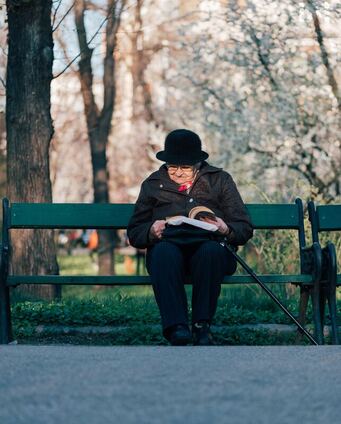 Photo by Alex Blăjan on Unsplash Photo by Alex Blăjan on Unsplash This week at Collegewise, we started an internal professional development class aimed at counselors who’ve been doing this work for a few years but want to check in on their skills and see where they can adjust things. I’m currently working with my sixth class of seniors, so I feel pretty comfortable with the cadence of our work, how long different projects will take, and where we can overlap our efforts. But this job still doesn’t feel easy or automatic. And I KNOW there are places where I can be more efficient. So I’m taking this class to get better at doing the work that I love. But that’s not the only thing I’m learning. I’m practicing French again after taking years away from my high school foreign language. I’m trying to learn how to do a proper push-up (which is taking *forever* thanks to my limited upper-body strength). And I read every single day, fiction and nonfiction, articles and books. Because lifelong learning not only introduces you to new information and ideas, it also keeps your brain healthy and sharp, and according to some studies, it reduces stress. Lifelong learning is also essential in our current knowledge economy. A knowledge economy is an “economy based on creating, evaluating, and trading knowledge” rather than physical goods. Our societal shift toward high-tech companies and products like apps means that we’re mostly spending money on people’s ideas rather than on physical products. For example, millennials can’t afford to buy houses, so they spend their money on travel, which often involves AirBnb, a product that brilliantly found a way to take a product that already existed – houses and apartments – and make money from it. The same thing goes for Uber and Lyft, which repurpose our own cars and turn them into taxis. So if the primary product in our economy is knowledge, that means lifelong learning is even more important. I had a coffee with a test prep and academic tutor this week who specializes in advanced math. I asked him up to what level he can teach and he said, “Multivariable calculus and linear algebra. I can’t just jump into the middle of a proof-based course, but I can figure it out if I start from the beginning.” When I told him how impressed I was with his math skills, he shrugged and told me, “I don’t know everything, but I’m an expert learner.” And that’s what I think we have to work toward, learning how to learn. The more quickly and masterfully we can incorporate new tools into our tool belt, the better prepared we’ll be for whatever comes next, even if we don’t know what that is.
0 Comments
Leave a Reply. |
What is the When I Was 17 Project?When I Was 17 is a blog series dedicated to collecting the varied stories of people's career paths, what they envisioned themselves doing when they were teenagers and how that evolved over the course of their lives. I started this project with the goal of illustrating that it's okay not to know exactly what you want to do when you're 17; many successful people didn't, and these are a few of their stories.
Archives
October 2020
|